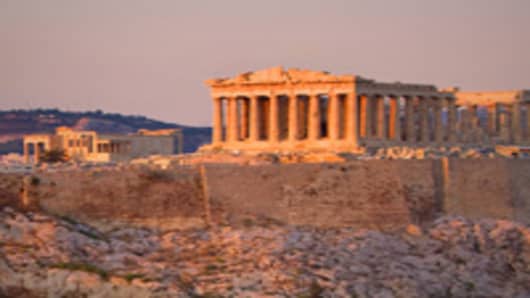When Solon came onto the Greek scene in 6th century BC, Athens was in disarray. Plutarch tells us that strife had engulfed the city, bringing it to the brink of anarchy. The source of this strife was that “all the common people were weighed down with debts they owed to a few rich men,” according to Plutarch.
Making matters worse, debtors who were unable to make payments when they were due were seized and sold into slavery.
A fragment of Solon’s poetry describes a situation in which many of the poor “have arrived in foreign lands/sold into slavery, bound in shameful fetters.”
In 594 BC, Solon was appointed archon of Athens. His solution to his city’s strife was to cancel both public and private debts and end debt slavery.
The freeing of the debt slaves and the cancellation of debt set the stage for the flourishing of the Athenian economy and culture. Freed slaves and unencumbered landowners formed the basis of an agrarian and democratic political culture that gave Greece its military might and helped shape the formation of western civilization.
Listen closely to the protestors in Greece. When they decry austerity plans that “turn workers into slaves,” they are echoing the sentiments of their ancient founder.
Questions? Comments? Email us atNetNet@cnbc.com
Follow John on Twitter @ twitter.com/Carney
Follow NetNet on Twitter @ twitter.com/CNBCnetnet
Facebook us @ www.facebook.com/NetNetCNBC



